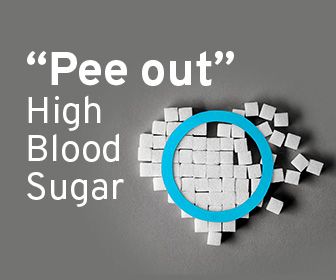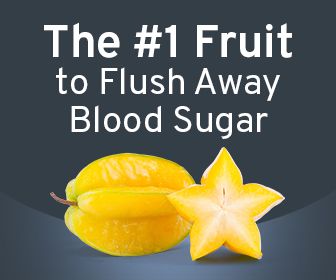The gut does more than digest food—it influences immune function, mental health, metabolism, and overall well-being. When digestion runs smoothly, energy levels stay high, inflammation stays low, and the body absorbs nutrients efficiently. But when gut health is compromised, issues like bloating, fatigue, brain fog, food sensitivities, and weakened immunity start creeping in.
Modern diets are filled with hidden gut disruptors that trigger inflammation, feed harmful bacteria, and damage the gut lining. Identifying and eliminating these problem foods can restore balance, improve digestion, and prevent long-term health issues.
Here’s a closer look at the worst offenders that sabotage gut health and why avoiding them can lead to a healthier, more resilient digestive system.
1. Processed Sugars and Artificial Sweeteners
Excess sugar feeds harmful gut bacteria and yeast like Candida, creating imbalances in the microbiome. Over time, these imbalances can cause bloating, gas, inflammation, and even sugar cravings that reinforce the cycle.
Artificial sweeteners—especially aspartame, sucralose, and saccharin—may seem like a good alternative, but they can disrupt gut bacteria and lead to glucose intolerance, weight gain, and digestive distress.
Opt for natural sweeteners like raw honey, maple syrup, or monk fruit in moderation. Prioritize whole fruits for sweetness while providing fiber and nutrients that support gut health.
2. Seed Oils and Hydrogenated Fats
Vegetable oils like soybean, canola, corn, and sunflower oil are often marketed as “heart-healthy,” but they are heavily processed and high in omega-6 fatty acids, which contribute to chronic inflammation. Over time, excess omega-6 intake disrupts gut microbiota and damages the gut lining.
Hydrogenated fats (found in margarine and processed snacks) are even worse, as they increase inflammation and contribute to leaky gut syndrome.
Use extra virgin olive oil, avocado oil, coconut oil, and grass-fed butter, which support gut health and provide anti-inflammatory benefits.
3. Refined Grains and Gluten
Highly processed grains—such as white bread, pasta, and pastries—strip away fiber and essential nutrients, leaving behind empty calories that spike blood sugar. This leads to gut imbalances, sluggish digestion, and increased inflammation.
Gluten, a protein found in wheat, barley, and rye, can be particularly problematic for people with gluten sensitivity or celiac disease. Even in those without diagnosed gluten issues, it may contribute to intestinal permeability (leaky gut), bloating, and discomfort.
Choose whole, unprocessed grains like quinoa, wild rice, millet, and buckwheat. If gluten causes bloating or discomfort, experiment with a gluten-free diet to see if digestion improves.
4. Dairy (for Some People)
Not everyone reacts poorly to dairy, but lactose intolerance and casein sensitivity are more common than many realize. Undigested lactose ferments in the gut, leading to bloating, diarrhea, and gas. Casein, the protein in dairy, can trigger inflammation in sensitive individuals.
Pasteurized and heavily processed dairy products lack beneficial enzymes and probiotics that raw, fermented dairy provides.
If dairy causes digestive distress, switch to lactose-free options, goat or sheep dairy (which are easier to digest), or fermented options like kefir and yogurt with live probiotics. Plant-based alternatives like almond, coconut, and macadamia milk can also be good substitutes.
5. Alcohol and Caffeinated Drinks
Excessive alcohol consumption disrupts gut bacteria, damages the gut lining, and impairs digestion. Even moderate intake can increase gut permeability, leading to inflammation and reduced nutrient absorption.
Caffeine—especially from highly processed energy drinks and excessive coffee consumption—can irritate the gut lining and contribute to acid reflux, heartburn, and digestive discomfort.
Limit alcohol intake and choose red wine (rich in polyphenols) or organic, low-sugar alternatives. Instead of relying on caffeine, try herbal teas, matcha, or adaptogenic drinks to support energy without straining digestion.
6. Highly Processed Foods and Additives
Many packaged and fast foods contain preservatives, emulsifiers, artificial colors, and flavor enhancers that disrupt gut bacteria, weaken digestive enzymes, and contribute to food sensitivities.
Common gut-irritating additives include:
Carrageenan (found in processed dairy and nut milks)
MSG (monosodium glutamate) (used as a flavor enhancer in snacks and takeout)
Sodium nitrates (found in processed meats)
Stick to whole, unprocessed foods with simple ingredients. If a food label contains ingredients you can’t pronounce, it’s probably best to avoid it.
7. Excess Red Meat (Especially Processed Meats)
While high-quality, grass-fed red meat can be part of a balanced diet, processed meats like bacon, hot dogs, and deli meats contain preservatives that harm gut health. These meats are often treated with nitrates, which have been linked to gut inflammation and increased cancer risk.
Excess consumption of conventional red meat alters gut bacteria composition and slows digestion, especially when paired with a low-fiber diet.
Choose grass-fed, organic meats in moderation and prioritize lean proteins like wild-caught fish, pasture-raised poultry, and plant-based protein sources like lentils and quinoa.
8. Carbonated and Artificially Flavored Beverages
Sodas, artificially flavored waters, and diet drinks contain phosphoric acid, artificial sweeteners, and carbonation that can disrupt stomach acid balance and irritate the gut lining.
Artificially flavored and sweetened drinks also kill beneficial bacteria, increasing the likelihood of bloating and digestive issues.
Replace sodas with filtered water, coconut water, kombucha (for probiotics), or herbal teas that support digestion.
Creating a Gut-Friendly Diet
Removing gut-irritating foods is only half the equation—rebuilding and nourishing the gut with healing foods is just as important.
Nutrient-Dense Foods That Support Digestive Harmony:
Fermented foods (sauerkraut, kimchi, miso, kefir) to replenish good bacteria
Prebiotic-rich foods (onions, garlic, leeks, asparagus, bananas) to feed gut flora
Bone broth to repair gut lining and soothe inflammation
Healthy fats (olive oil, avocado, grass-fed butter) to support digestion
Herbal teas (ginger, peppermint, chamomile) to ease bloating and digestive discomfort
Restoring Balance for a Healthier Gut
Gut health influences everything from digestion and energy levels to immune function and mental clarity. Eliminating foods that trigger inflammation and disrupt the microbiome allows the gut to heal, absorb nutrients more efficiently, and restore balance.
Small, consistent changes—such as reducing sugar intake, choosing whole foods, and limiting processed additives—can lead to profound improvements in gut health over time. A well-functioning digestive system is the foundation for long-term vitality, resilience, and overall well-being.





